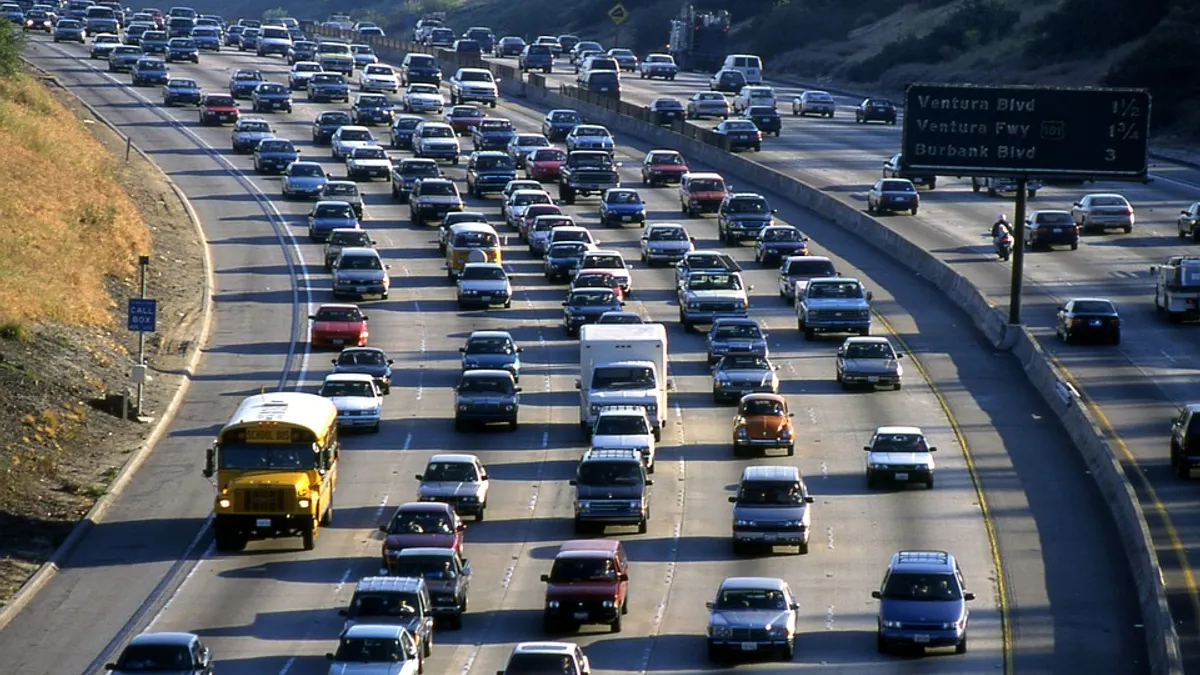Dive Brief:
- California Assemblyman Phil Ting introduced AB 1745, known as the Clean Cars 2040 Act, in the state legislature this week, which would require all new cars registered in California after Jan. 1, 2040 to be zero emissions vehicles.
- The bill defines "zero emissions vehicles" as not producing emissions of any criteria pollutant or greenhouse gas (GHG) under any operational condition. The bill does not apply to commercial vehicles or vehicles owned by people moving to California from another state.
- In a statement, Ting attributed fossil-fueled vehicles as being responsible for nearly 40% of California's GHG emissions. California has a goal of reducing GHG emissions to 1990 levels by 2020, equivalent to a reduction of approximately 431 million metric tons.
Dive Insight:
California has a long history of aggressively combating climate change with regulation; therefore this bill is not as groundbreaking as it would have been if introduced in any other state. The California Air Resources Board and Gov. Jerry Brown have both shown interest in this measure in the past, however, indicating that this bill has strong potential to move forward in the legislature.
In a recent interview with Automotive News, Ting addressed the future deadline for the switch to emissions-free vehicles, noting, "Until you set a deadline, nothing gets done." If passed this year, California leaders and residents will have 22 years to prepare for fossil fuel-free roads — which may be necessary to build out electric vehicle (EV) infrastructure and opportunities.
California already has the one of the largest zero-emissions vehicle (ZEV) car markets in the world with more than 300,000 EVs on the road. In October 2016, the state set a lofty goal of reaching 1.5 million ZEVs on the road by 2025, which may only become reality with increased incentives including ZEV rebates and HOV lane access. The state also needs to work more aggressively with private and public utilities for the roll out of charging stations to support the growing ZEV market.
Some cities, like Los Angeles, have launched electric car-sharing programs to help boost the popularity of EVs among low-income communities. Through its partnership with the Los Angeles Department of Transportation (DOT), BlueLA is expected to bring 100 EVs and 200 charging points to the city in 2018.
Around the world, countries such as China, France and the U.K. are also pursuing the efforts of California in banning fossil fuel car sales by 2040. Norway is even more aggressive in its efforts with a goal of phasing out fossil-fueled cars by 2025 — and, as a result, more than half of new cars sales in Norway are electric or hybrid. If this trend continues to impact countries on a national level, it could turn a chapter in the global fight against climate change.












